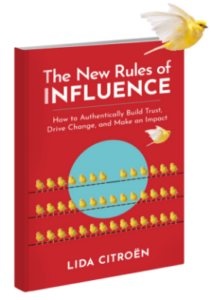
I recall when my sons played high school football, there was one particular parent/coach/player meeting in the school auditorium that stood out. The coaches brought in college football scouts to talk to the players about what they looked for in their recruiting efforts.
They talked about watching film, assessing skill, and evaluating talent and potential ability. But, they said, there was one thing they watched for most of all. “You see,” said one of the Ivy League scouts, “you can teach a player skill, you can train them for ability, but you can’t teach desire.” Above all, they looked for for desire – the fire in the belly that said, no matter what, I want this!
That meeting was many years ago, and I still remember it clearly. It struck me how often we refine our skills, add certifications and degrees, and advance our positioning all the time forgetting to ask ourselves if we really want what we’re pursuing so aggressively.
The word desire, by definition, means longing, a wish or something you crave. It also has sexual overtones when applied like lust. I see desire as passion for a vision, craving an outcome, and striving for something with your whole self. I do not see desire as the same as “competition” because I think you can desire something you want to attain without competing for it (at someone else’s loss). For instance, I have a very strong desire to make a meaningful impact on the military veterans I serve with my offer, but I don’t feel that I am competing for this goal against anyone else (i.e. I will achieve this goal without needing to outdo someone else or at their sacrifice).
“The first principle of success is desire – knowing what you want.”
Robert Collier
Tapping into desire to achieve goals
Assuming you are building a career around goals and a vision you designed, how can you use your desire to accomplish those goals to benefit your current job and position? The first step is to be clear: What do you want? Simply saying “success” or “money” is not clear. How will you ever know if you’ve achieved that goal or are on the right path?
Instead, ask yourself:
- What makes you happy: Do you crave validation, praise, and recognition? Are you satisfied knowing you did a good job? Will money and financial recognition make you feel validated?
- When you have felt success or accomplishment in the past, what did you do, who was with you, and what circumstances or situations did you have to overcome? In my book, Reputation 360: Creating power through personal branding, I call this Your Super Hero Moment. Reflect on that time when you felt invincible – think about what led to your action, and remind yourself of how powerful you felt.
- Are you afraid of your desire? It’s called the “fear of failure” by some, and for many people this is a real deterrent to achieving success. Could fear of your power and potential be holding you back from leaning in fully to your capabilities and goals? What could you accomplish if you were not afraid?
- Can you put a name, title, and narrative to your desire? Call it something like, “I want to get to Lida 2.0 – the best me I’m capable of!” Get descriptive about what that goal looks like, being as detailed as possible. Avoid generalities and go deep into describing how, where, what, when, and with whom you will be successful if/when you truly can want (desire) that goal.
Desire expressed in behavior
Once you are clear about your goals and where you are headed, desire really takes front stage: You now need to lean in fully to your conviction and vision of where you want to be.
Acting with desire can look like drive, passion, assertiveness, competitiveness, aggression, craving, longing, confidence, and determination. Because it can be easily perceived to be a negative (“he is so assertive he neglects to include others,”) we must navigate desire through our personal brand strategy. Unless you strive to be perceived as pushy and arrogant, you will use your desire to build relationships, circumvent challenge, and pursue opportunities that not only meet your goals but create a broad and sustainable reputation for yourself that lasts throughout your career.
What fire burns in your belly? What drives you to reach out when you see injustice or opportunity? Why are you morally compelled to raise your hand when it’s your turn but at other times you can sit idle? Desire and passion are potential drivers to many of the most successful personal brands I’ve worked with over the years. Expressing that desire in ways that serve communities, individuals, and businesses is a powerful skill.
How has your desire for a goal or vision impacted your career? Please share your thoughts with us!



